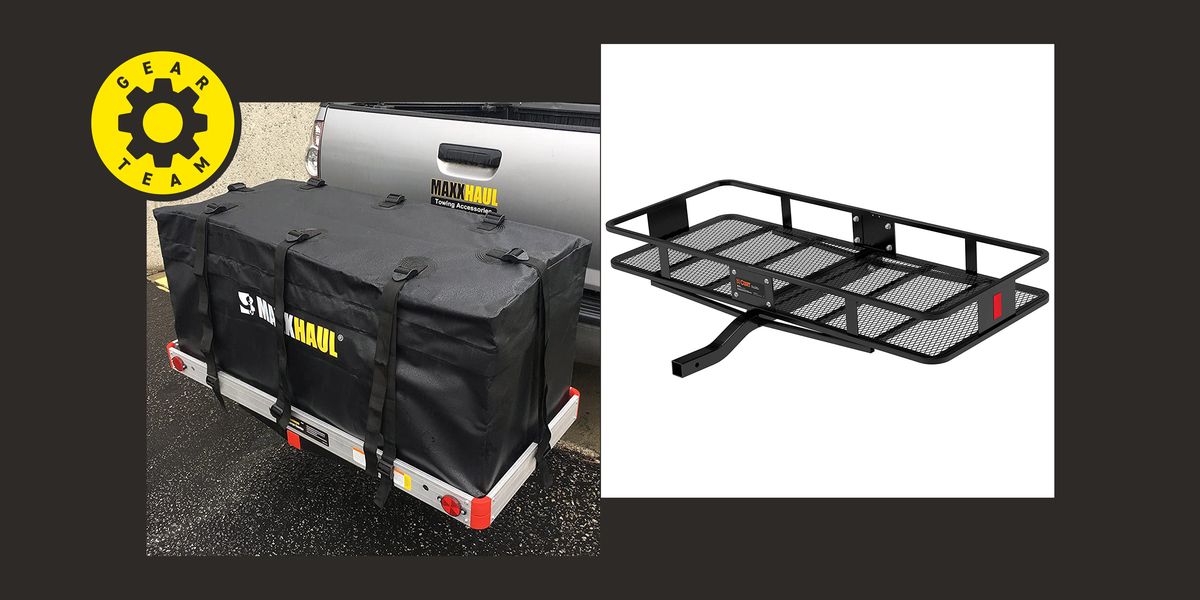Hitch-Mounted Cargo Carriers for Road Trippers

Are Hitch-Mounted Cargo Carriers Safe?
If hitch-mounted cargo carriers are installed correctly, then yes—they are safe. However, you can add things to the carriers to protect your luggage even more. This can be done by strapping your gear down, purchasing a carrier with high walls, throwing a waterproof protector over it, and—best of all—getting a locking carrier to keep everything secure.
If installed incorrectly, the carrier can be a serious hazard to drivers around you. Exceeding the weight limit, improperly securing your gear, and using the wrong attachments can be very dangerous.
There are hitch-mounted cargo carriers with reflective lights to help your load be more visible to other drivers, especially at night. Always use caution when maneuvering around with a loaded cargo carrier, as seeing whether you’re about to hit something can be difficult. The load may also block your backup camera, so make sure your head is on a swivel when in reverse.
Do Hitch-Mounted Cargo Carriers Need Lights?
Only if the carrier and its luggage are blocking the taillights of your vehicle. If so, you will need to install a light kit. Even if it’s not blocking your lights, installing a light kit might be a good idea to increase the carrier’s visibility for other drivers.
How Much Weight Can a Hitch-Mounted Cargo Carrier Carry?
This depends on the rating of both the hitch rack and the carrier itself. The beefier the hitch (also designed as its class rating), the more it’ll carry. Along with the rating of the carrier based on the weight limit set by the manufacturer, this is how you’ll find your carrier’s weight limit. Typical carriers will hold 150 to 300 pounds, depending on the hitch class, but you can also find carriers that will hold over 500 pounds when paired with the correct hitch rack.



